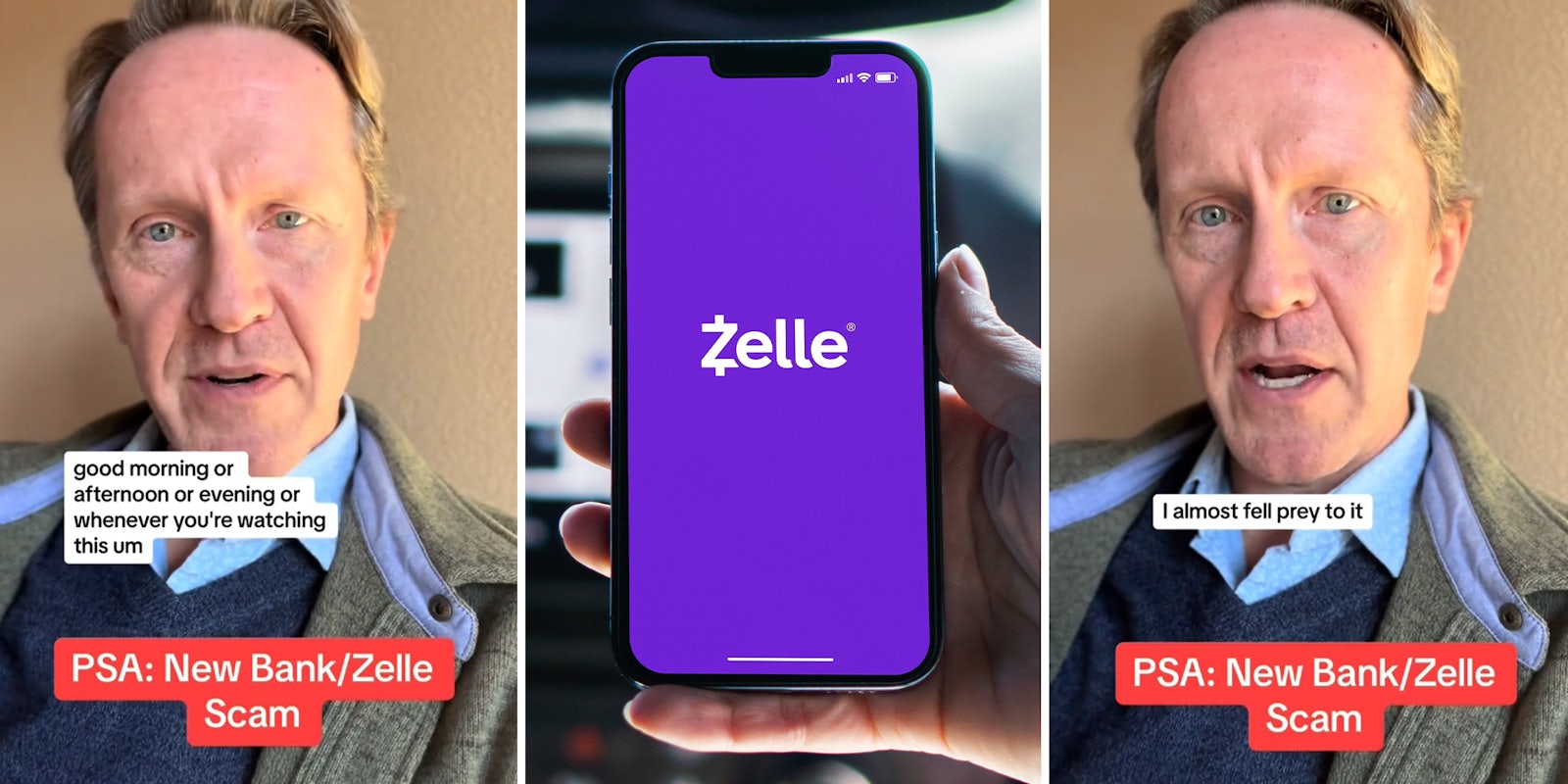Scammers are becoming more clever, finding new and elaborate ways to steal your money. A man issued a public service announcement about a new Zelle scam after he almost fell victim to it.
TikTok user Jeffry Denman (@jeffrydenman) revealed how he received a phone call from a 1-800 number from a woman named Gloria posing as an employee from Bank of America. From there, she claimed that his account had been “compromised.”
Denman explains, “Someone had used my phone number to access my Zelle account to transfer money to create a checking account through Bank of America to transfer the money to themselves and then close the account immediately.” To stop this, Gloria told the content creator he had to confirm his identity.
However, something prevented Denman from doing this: Casey from Chase Bank. After relaying the incident to the Chase employee, they told the content creator, “This sounds very much like a scam, but it’s a very sophisticated scam.”
“This is what you need to watch out for: They can make their number look like Bank of America,” Denman explained. After he hung up on the scammer, he called Bank of America. The scammer somehow had the same number as Bank of America.
While at both Chase and Bank of America, the scammer was calling him. At Bank of America, the employee confirmed the number the scammer was using was theirs. In addition, the content creator warned his followers to “watch themselves” regardless of how “kind” and “compassionate” the scammer sounds. Moreover, he advised his followers if they were being scammed to go to the branch of the bank the scammer was using and talk to one of the workers. Secondly, don’t believe the scammer if they urge you not to access your account.
“No one should ever tell you, especially a bank person, not to log into your account,” he said. “That’s a bunch of bullsh*t.”
@jeffrydenman Please share!!!!!
♬ original sound – Jeffry Denman
The Daily Dot reached out to Denman via TikTok comment and Bank of America via press email. The video racked up over 1.3 million views. In the comments, viewers said don’t take calls from unknown numbers.
“This is why I don’t answer the phone anymore,” one viewer said.
“I don’t speak to anyone that I don’t know on the phone,” a second remarked.
In addition, some warned of other red flags to keep an eye out for.
“Banks will usually never call you. And if they do just say I’ll call you back using the number on the back of my debit card,” one user shared.
“if a bank or anything calls YOU with a concern. Hang up! then YOU CALL your bank from the app directly!” a second warned.
Even one viewer had a similar experience, “Same exact happened to me with Citibank and Zelle! I went to the branch! The branch was even believing it at first!”
In a follow-up video, Denman answered questions viewers had. The content creator never gave out any personal information, including account numbers. Next, he explained how the scam worked. “There are these transactions that have occurred. The transactions have ID numbers. You are supposed to confirm the ID numbers,” he said. “The transaction ID numbers are the thing that become the amount that you send them. That’s what I was having to confirm.” Furthermore, during the incident, Denman clarified he locked his Chase account and hung up as soon as the red flags went off.
@jeffrydenman Update and Questions (some) answered. Enjoy your day!
♬ original sound – Jeffry Denman
Indeed, banks don’t call customers for personal information. “Always remember that your bank won’t call you asking for any personal information. [Scammers will] tell an alarming story to pressure you to act quickly, but their ultimate goal is to get you to give them personal or financial information or have you send money before you have time to think about it,” per Bank of America.


